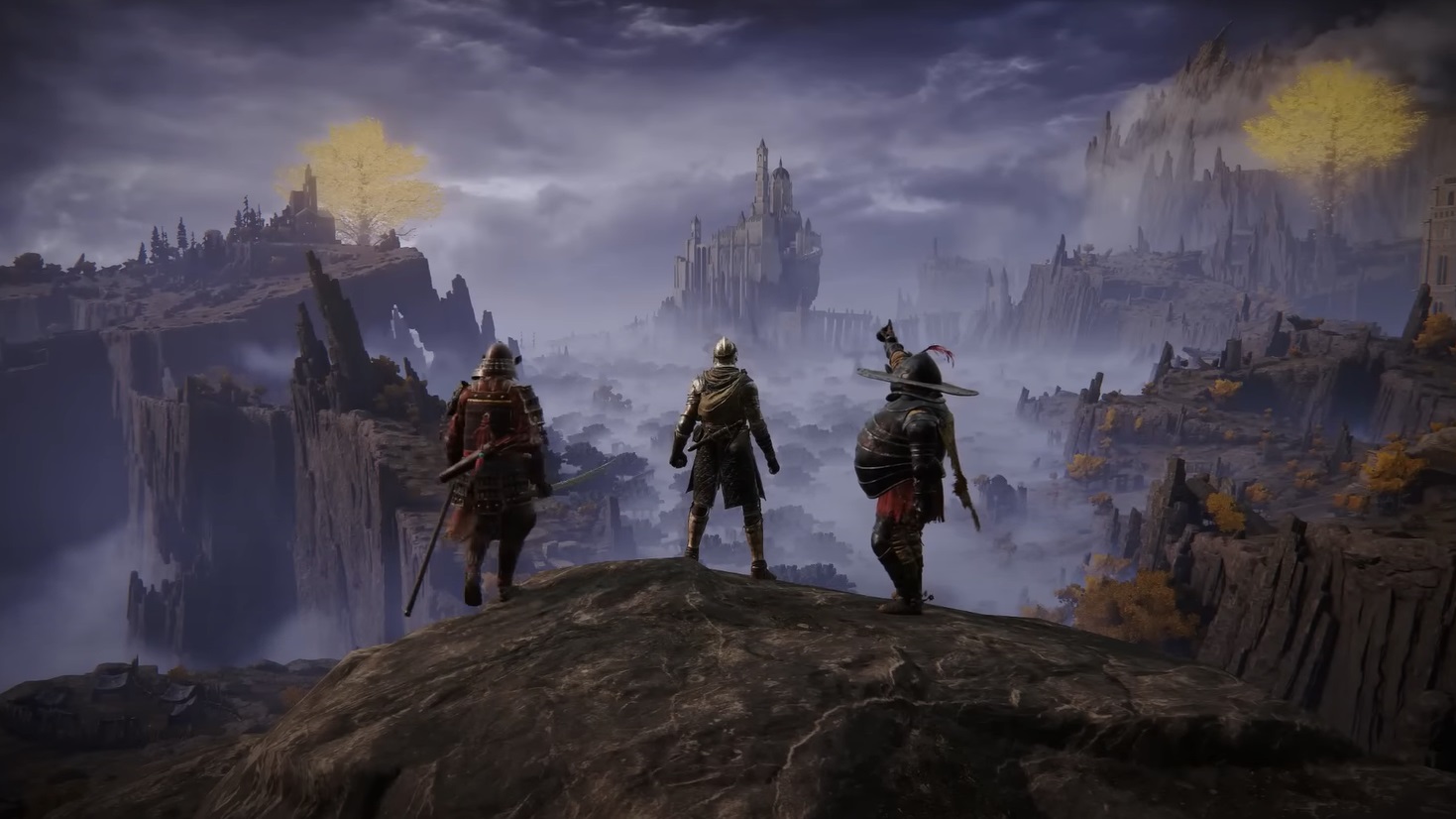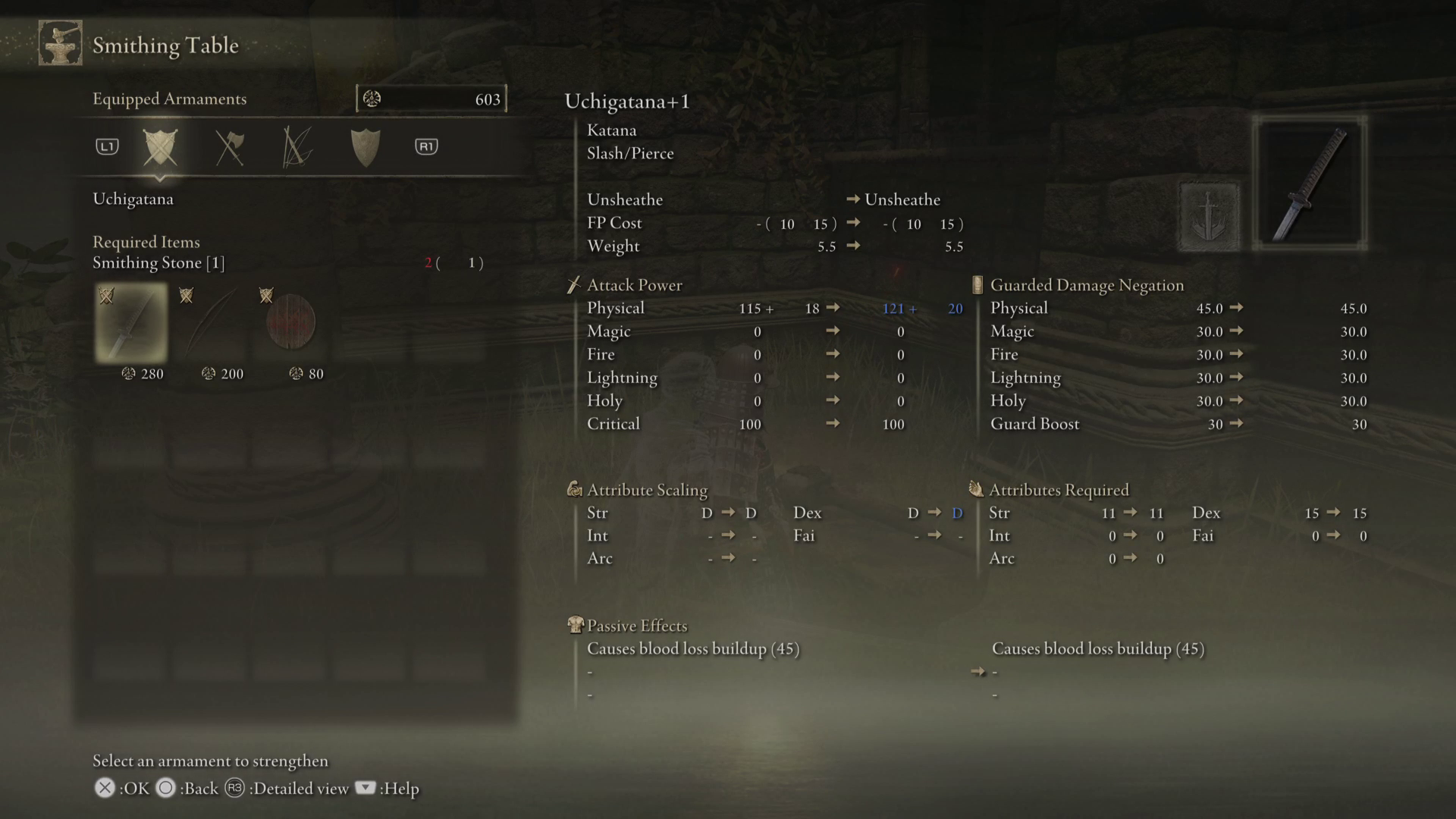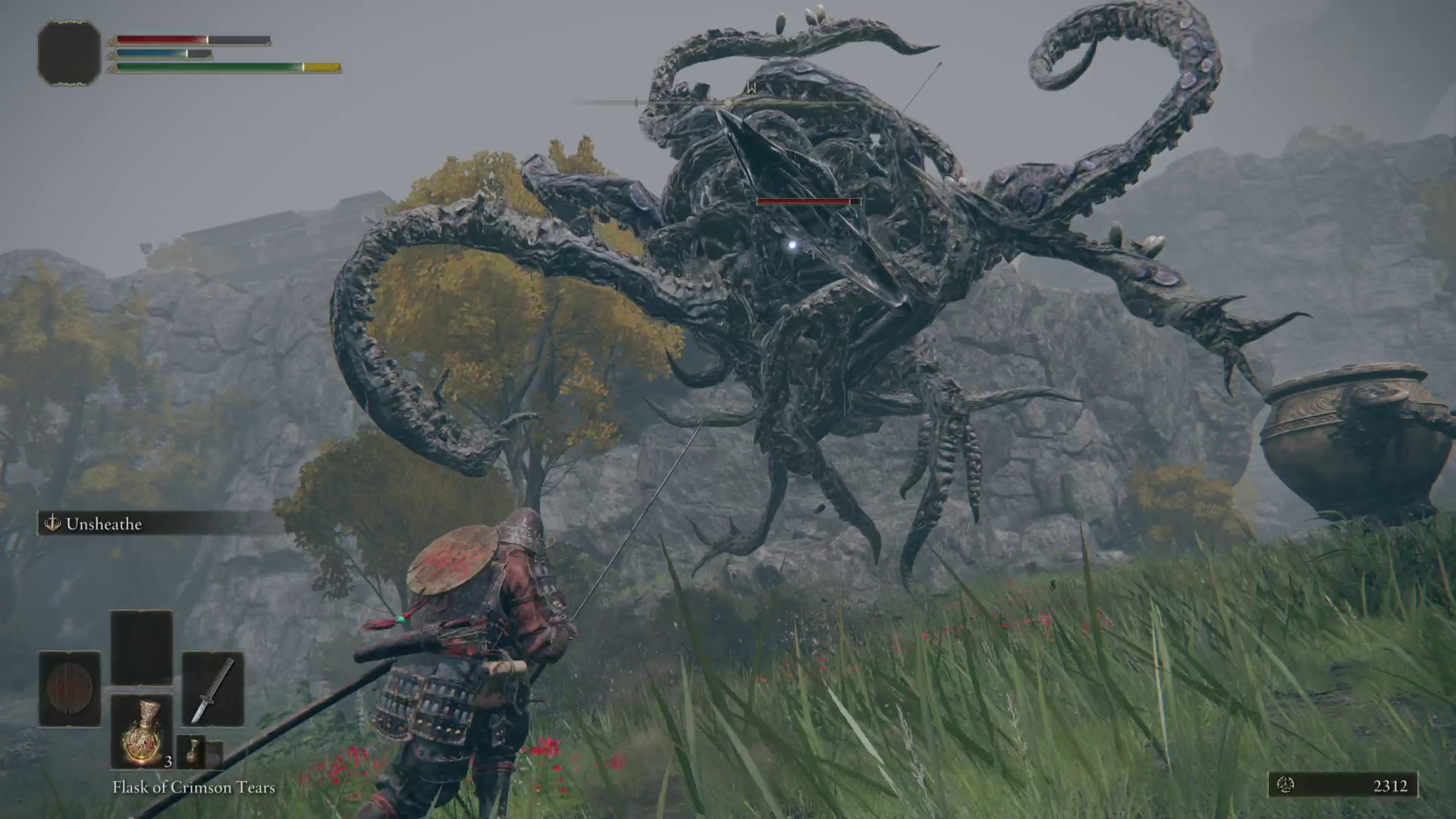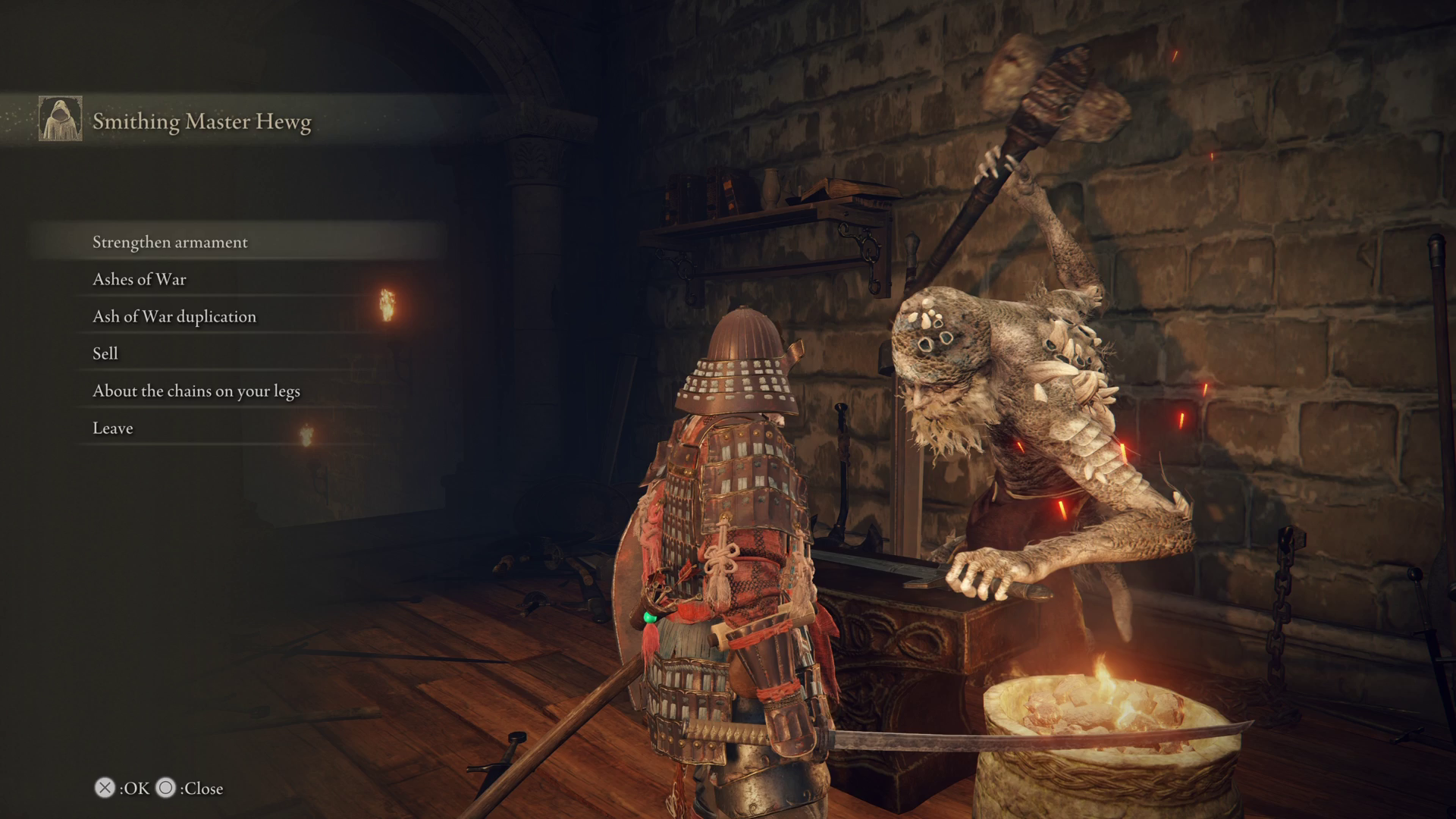The Elden Ring weapon scaling system and bonus damage explained
We explain attribute scaling in Elden Ring and how you can get bonus damage for weapons

Elden Ring weapon scaling is how a weapon uses your characters stats to change how much damage it does, based on a letter rating in its description. The better the letter, the more the stats marked will positively impact the weapon's damage. Weapons can scale to Strength, Dexterity, Intelligence, Arcane or Faith, or even any combination, with some weapons affected by multiple numbers at the same time.
Weapon scaling is one of the most important and least-explained mechanics in Elden Ring, as it'll define what's powerful and what's weak in your hands. For that reason, it's highly important to understand, so we'll go through all the different facets of the the Elden Ring weapon scaling system below to help you get exactly what you need from it.
Elden Ring weapon scaling explained

Weapon scaling in Elden Ring is a special mechanic whereby certain weapons gain bonuses depending on your stats. It's a little hard to explain, so we'll go over it step-by-step below.
- Let's use the example of the Uchigatana, which is the starting weapon for the Samurai. When we look at its stats, we see its base form, for us, has 115+18 attack power. This is the sum total of the damage it inflicts on enemies. Obviously, we want this number to be as high as possible.
- The 115 is the standard Uchigatana damage. Our attributes - our stats - don't affect this part. The only way to change this number is to upgrade it at an anvil or blacksmith, and even then, our attributes won't impact this specific number. This'll be the same no matter who holds this blade.
- However, the bonus +18 part is based on our attributes. Beneath the attack power we can see that this weapon has a section called "Attribute Scaling", and it has D-grade scaling in both Strength and Dexterity.
- These letter grades mean that our character's Strength and Dexterity attributes are both being used for this weapon's bonus damage, the scaling acting as a multiplier. As we increase our Strength or Dexterity by levelling up at Sites of Grace, the weapon will do more bonus damage.
- However, the multiplier offered by scaling can also change! This is where things get a little more complex: upgrade or modify the Uchigatana, and the Dexterity scaling will change from a D-grade to a C-grade, or even better. This means that any change to our Dexterity has an even greater effect, as the multiplier increases with each upgrade. So a Dexterity of 20 will add a small amount of damage to an E-grade Dex scaling, and a lot of damage to an A-grade Dex scaling!
- We can see on the image above that levelling up the weapon is making a minor improvement on the Dexterity scaling specifically (though not enough to take it out of the D-grade), and consequently if we committed to the upgrade, it'd take the bonus damage from +18 to +20, even though our Dexterity - the stat it's based on - hasn't changed. That's the power of scaling for you!
Whoo! It sounds complex, but all this means that the best thing you can do is to find a weapon that scales to your best stat, and does so in a big way. If you're really good at Strength, you want a weapon with A-grade Strength scaling. Then keep levelling up that Strength for the maximum payoff - a weapon that does game-changing damage.
It's also worth mentioning that some weapons do more than one kind of damage - a sorcerous sword, for example, might do both slashing and magic damage with every strike. In these cases, it's likely to scale to both Intelligence (a sorcery-focused stat) as well as Strength or Dexterity. But all of these scalings should boost both kinds of damage, even though there's usually no link between Strength and magic damage. Scaling effects everything the weapon does - an important thing to remember! If you're not sure about it, make sure to check the preview you're shown when deciding on levelling up stats or upgrading weapons.
How to improve and change weapon scaling
How to improve and change weapon scaling


Want to know how to strengthen weapons in Elden Ring and make them even more powerful? Check out our guide to get a proper god-slaying blade.
It is possible to alter a weapon's attribute scaling beyond simply improving it with Smithing Stones. Applying Ashes of War allows you to choose new "Qualities" for the weapon that worsen some scaling and improve others. A Keen Quality, for example, worsens Strength scaling while improving Dexterity scaling. Great for some builds, bad for others.
Players can also find Whetstones throughout the game that increase how many Qualities you can pick from, including adding bonus effects like fire or ice damage. These can be very useful, but it's still important to recognise the best use of scaling. At the end of the day, you want your weapon to be doing as much damage as possible, with the actual damage type tending to be less important overall (unless you're leaning into certain very specific builds).
Elden Ring weapons | Elden Ring armor locations | Elden Ring Smithing Stones | Elden Ring best builds | Elden Ring best spells | Elden Ring Ashes of War | How to get the Elden Ring Golden Scarab | Elden Ring Stonesword Keys | Elden Ring Meteorite Staff | Best Elden Ring early game weapons | Elden Ring Sacred Relic Sword
Sign up to the GamesRadar+ Newsletter
Weekly digests, tales from the communities you love, and more

Joel Franey is a writer, journalist, podcaster and raconteur with a Masters from Sussex University, none of which has actually equipped him for anything in real life. As a result he chooses to spend most of his time playing video games, reading old books and ingesting chemically-risky levels of caffeine. He is a firm believer that the vast majority of games would be improved by adding a grappling hook, and if they already have one, they should probably add another just to be safe. You can find old work of his at USgamer, Gfinity, Eurogamer and more besides.
- Leon HurleyManaging editor for guides


